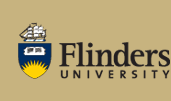
The Graduate Certificate in Information Technology is an 18-unit program offered by the School of Computer Science, Engineering and Mathematics, within the Faculty of Science and Engineering.
The course articulates with the Graduate Diploma in Information Technology and the Master of Information Technology, and the sequentially developed topics allow progression through the three awards.
Candidates who have completed the graduate certificate are awarded credit towards the graduate diploma.
Applicants must normally hold an approved degree or equivalent qualification from an approved tertiary institution. However, the Faculty Board may, under certain circumstances and subject to specific conditions, admit others who can show evidence of fitness for candidature.
The course has been designed to provide graduates with:
The course provides the foundations that will underpin ongoing professional development, preparing graduates for further study or for a career in a computing related field or in other areas where the range of skills and knowledge acquired is needed or desirable.
On completion of the course, students will be able to:
Semester 2 entrants will be assumed to have a knowledge programming as they will need to undertake topics that assume a reasonable programming ability (preferably in Java).
18 units selected from*:
BUSN9027 E-Business (4.5 units)
COMP8701 Fundamentals of Computing GE (4.5 units)
COMP8702 Computer Programming 1 GE (4.5 units)
COMP8731 Software Engineering 1 GE (4.5 units)
COMP8741 Application Development GE (4.5 units)
COMP8761 Databases and Conceptual Modelling GE (4.5 units)
COMP8762 Operating Systems GE (4.5 units)
ENGR8782 Computer Networks GE (4.5 units)
ENGR8792 Software Engineering 2 GE (4.5 units)
*With the permission of the Director of Studies, students may substitute the listed topics with CSEM option topics from Table A listed under Computer Science / Information Technology, Digital Media or Software - Groups C, D or S or other topics listed in the Master of Information Technology.
CRICOS Provider: 00114A | Updated: 12 Aug, 2010